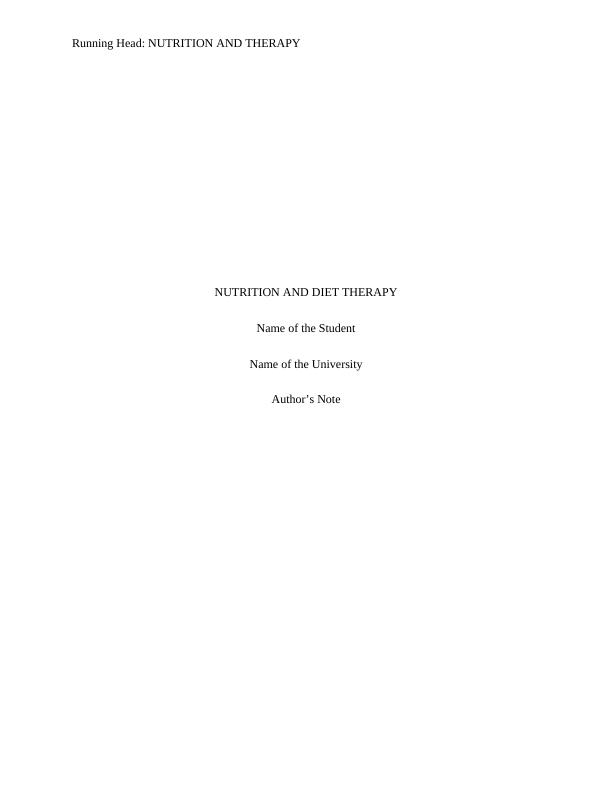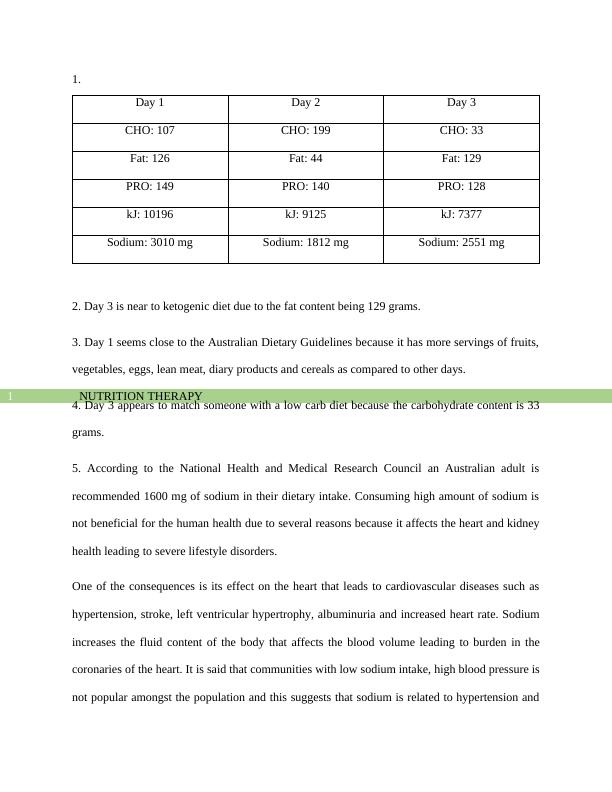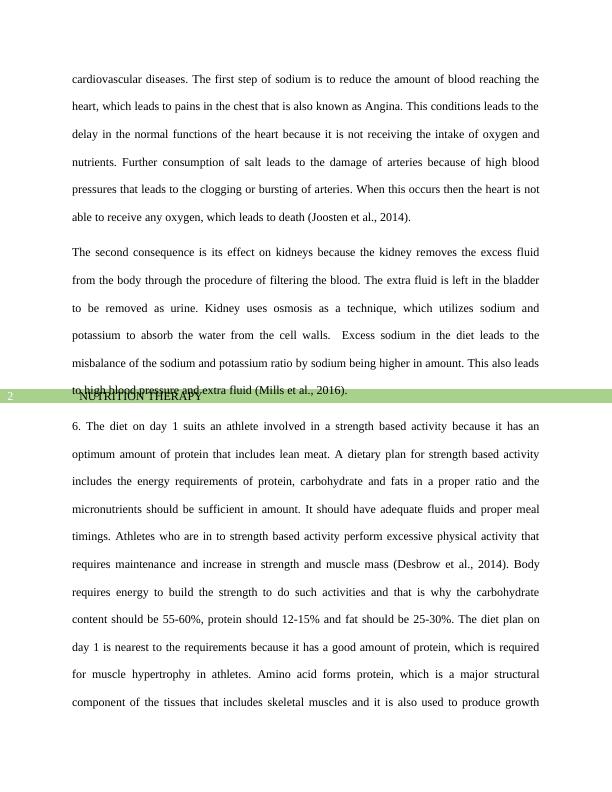Nutrition And Therapy Assesment Report
Enter the following foods into MyFitnessPal app and complete the questions below
7 Pages1553 Words25 Views
Added on 2022-08-26
Nutrition And Therapy Assesment Report
Enter the following foods into MyFitnessPal app and complete the questions below
Added on 2022-08-26
ShareRelated Documents
End of preview
Want to access all the pages? Upload your documents or become a member.
Study Material on Biology and Psychology
|12
|2644
|73
Nutrition Intervention and Planning
|41
|1271
|48
Nursing Reflective Activity | Report
|5
|889
|54
Dietary Assessment
|9
|2233
|406
Public Health - Assignment (Doc)
|18
|4344
|112
High Sodium Intake in Australian Adolescents: Risks and Recommendations
|2
|578
|409



